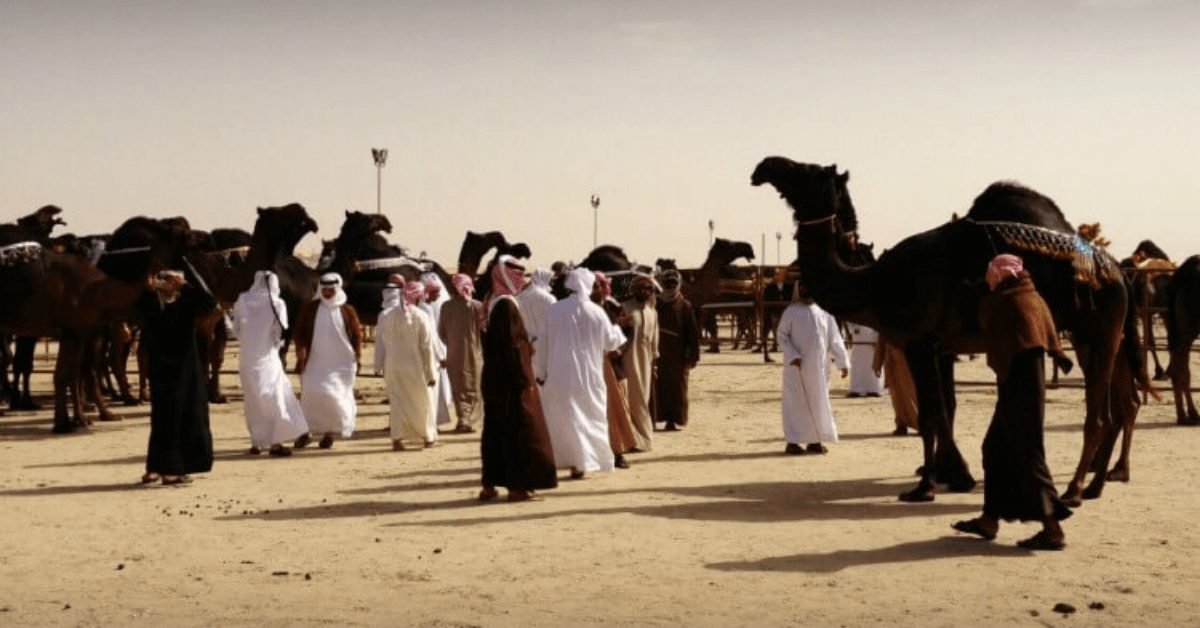Dubai, a city known for its opulence and modernity, also holds rich cultural traditions rooted in the Emirati heritage. Exploring the desert safari experience in Dubai goes beyond the thrill of sand dunes and breathtaking landscapes; it offers a unique opportunity to immerse oneself in the traditions and customs of the Emirati people. By understanding and respecting their culture, visitors can create meaningful connections and gain a deeper appreciation for this enchanting destination.
Emirati Culture and Heritage
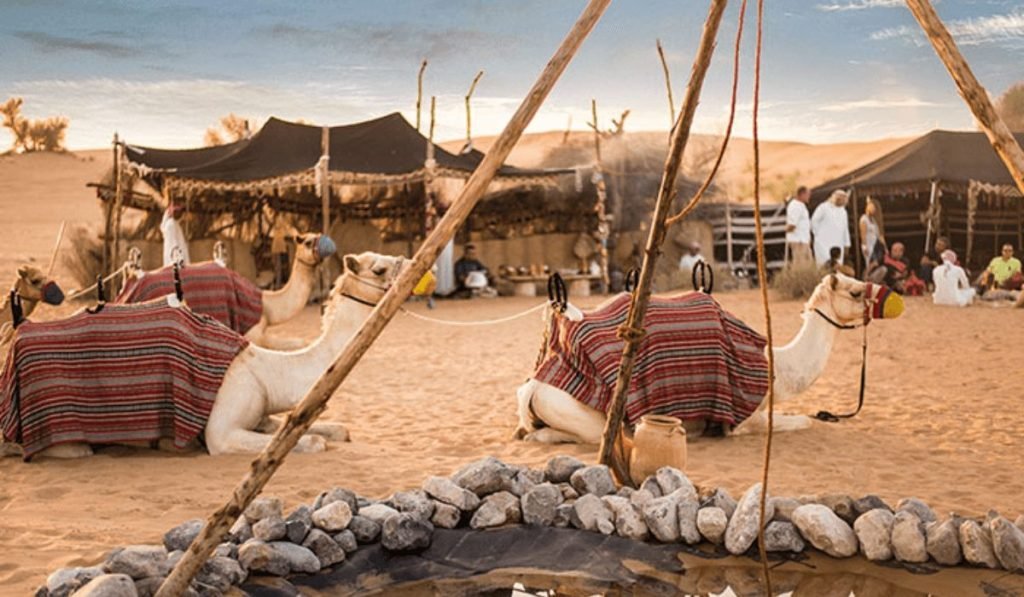
Dubai’s culture is a tapestry woven with the threads of Emirati heritage. The Bedouin roots of the Emirati people are evident in their traditions and customs. Their culture is deeply influenced by Islam, the predominant religion in the region. Emirati hospitality, traditional music, dance, and cuisine all reflect the values and practices passed down through generations.
Greetings and Etiquette
Emirati culture places great importance on greetings and etiquette. A warm and respectful greeting sets the tone for interactions. “As-salam alaykum” (peace be upon you) is the customary Arabic greeting, and it is often followed by “wa alaykum as-salam” (and upon you be peace). Understanding the significance of greetings helps visitors establish positive connections with Emirati locals.
Dress Code and Modesty
The traditional attire of Emirati men includes the crisp white “bandura” (thobe) and the headdress called “ghutra” or “keffiyeh.” Emirati women traditionally wear the elegant “abaya” and may also cover their heads with a scarf known as “Shayla.” These garments reflect the cultural values of modesty and respect. Visitors should be mindful of appropriate dress codes, especially during a desert safari, to show respect for Emirati customs.
Bedouin Hospitality and Guest Etiquette
Bedouin hospitality is deeply ingrained in Emirati culture. Visitors to Dubai are often welcomed with open arms, as sharing food and drink is a traditional gesture of friendship. Embracing the customs of being a guest, such as accepting offers of hospitality and showing gratitude, allows visitors to fully experience the warmth and generosity of Emirati locals.
Emirati Cuisine and Dining Customs
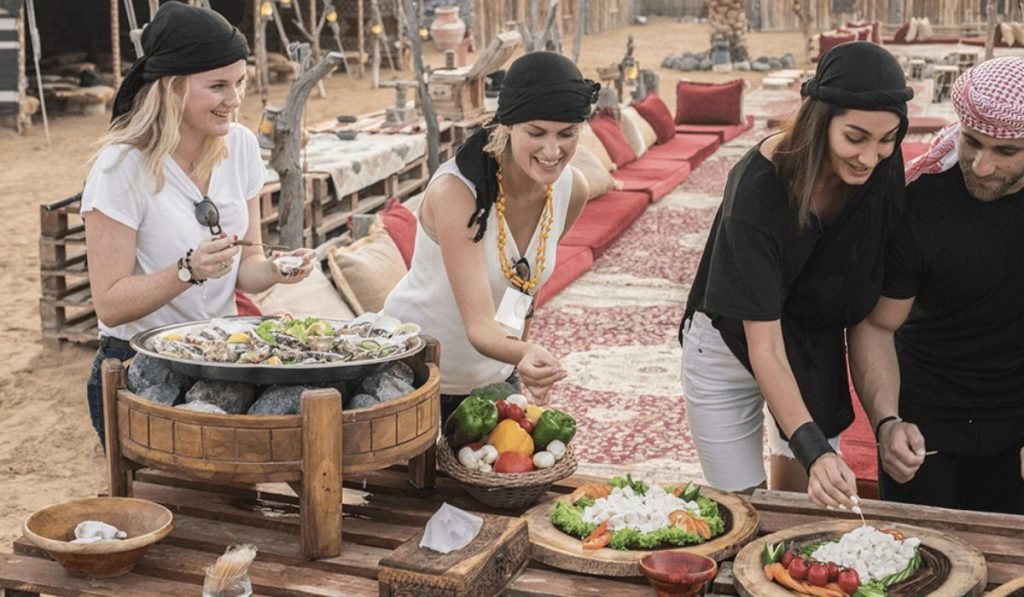
Emirati cuisine tantalizes the taste buds with a blend of flavors, drawing inspiration from the desert and the sea. Traditional dishes like “machbous” (spiced rice with meat or seafood) and “maqamat” (sweet dumplings) offer a glimpse into Emirati culinary heritage. Dining customs, such as eating with the right hand and experiencing “majlis” (traditional gatherings), provide a deeper understanding of Emirati culture.
Music, Dance, and Traditional Entertainment
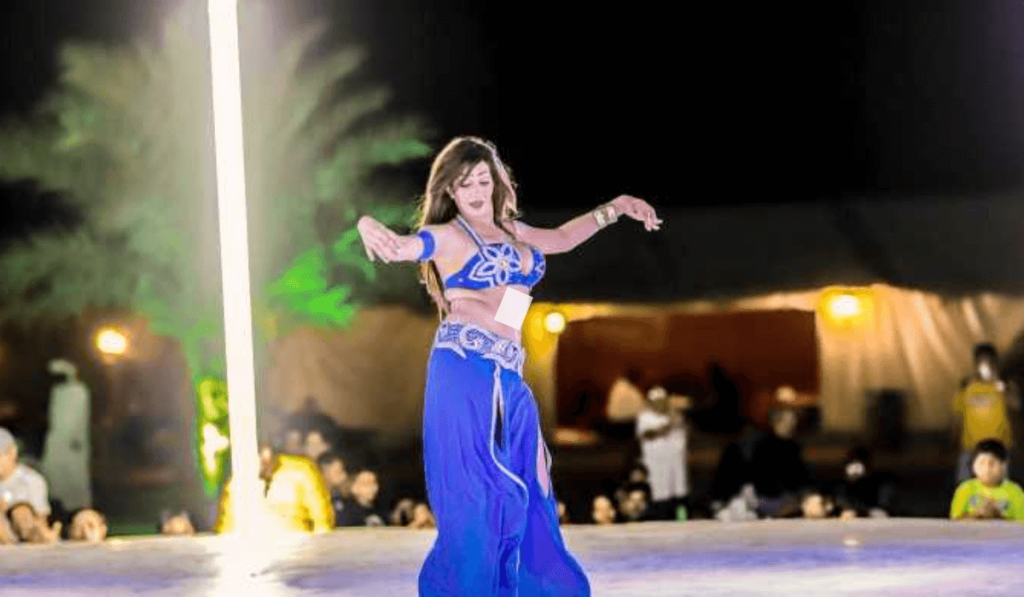
Emirati culture comes alive through its vibrant music and dance forms. The “yeah” and “liwa” are popular traditional music styles accompanied by instruments like the “oud” (lute) and “baba” (stringed instrument). Folk dances like “ayah” and “raqs al-saif” showcase the rhythmic footwork and expressive movements of Emirati traditions. Experiencing these forms of entertainment connects visitors to the heart and soul of Emirati culture.
Camel Riding and Falconry
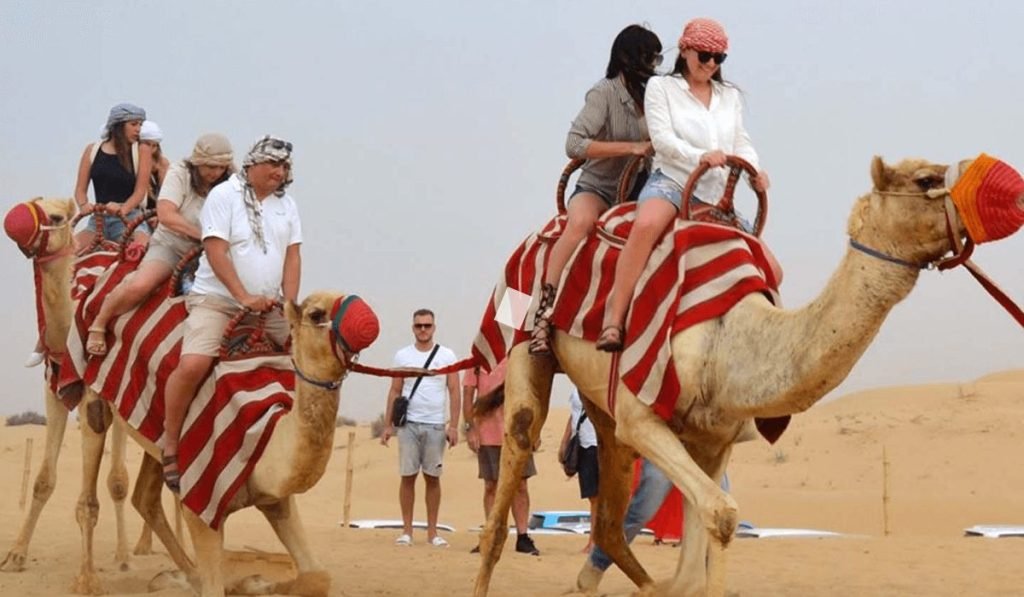
Camels hold a special place in Emirati heritage and have been an integral part of desert life for centuries. Camel riding experiences during a desert safari allow visitors to appreciate the majesty of these desert dwellers and understand their significance in Emirati culture. Falconry, an ancient art of training and hunting with falcons, is another cherished Emirati tradition. Witnessing a falconry display offers a glimpse into the deep bond between falconers and their majestic birds.
Traditional Emirati Crafts and Art
Emirati craftsmanship showcases the skill and artistry of the local artisans. Palm weaving, pottery, and silver jewelry making are just a few examples of traditional Emirati crafts. These crafts reflect the resourcefulness of the Bedouin people and their ability to create beautiful objects from the limited resources of the desert. Supporting and appreciating Emirati craftsmanship contributes to the preservation of these time-honored traditions.
Emirati Festivals and Celebrations
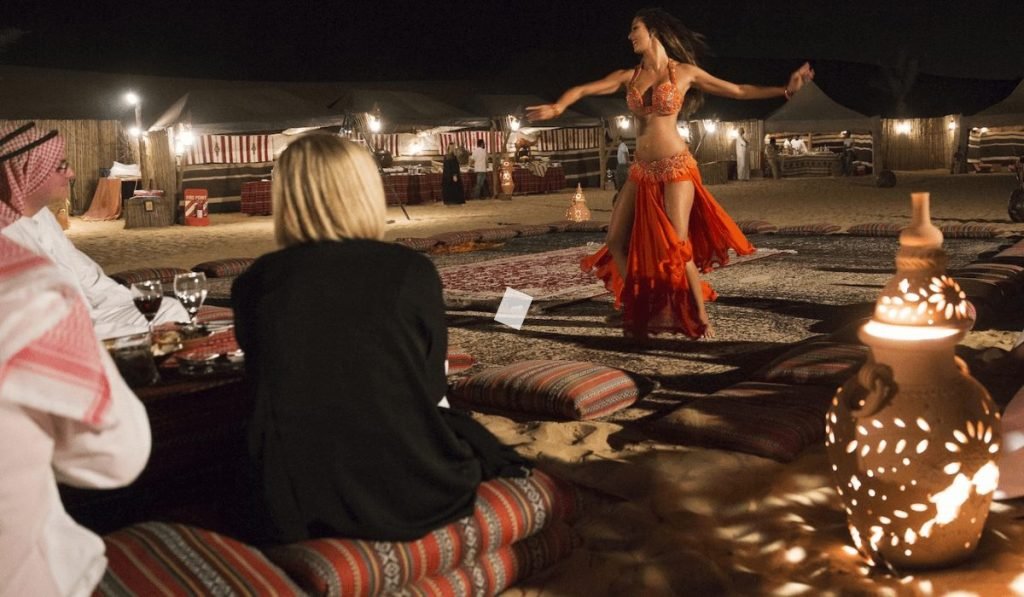
Emirati festivals and celebrations provide a window into the cultural tapestry of Dubai. Festivals like Eid al-Fitr and Eid al-Adha, marking the end of Ramadan and the annual Hajj pilgrimage, respectively, are widely celebrated. The Dubai Shopping Festival and the Dubai Food Festival showcase the city’s love for shopping and gastronomy. By participating in these festivals and observing the associated traditions, visitors gain a deeper understanding of Emirati culture.
Environmental Awareness and Sustainability
Emirati traditions emphasize the importance of preserving the environment and living in harmony with nature. The fragile desert ecosystem requires sustainable practices to maintain its beauty and ecological balance. Visitors can contribute to conservation efforts by adopting responsible tourism practices, such as minimizing waste and respecting wildlife habitats during their desert safari experience.
Conclusion
To truly appreciate the desert safari experience in Dubai, it is essential to understand and respect Emirati traditions and customs. By immersing oneself in the rich tapestry of Emirati culture, visitors can forge meaningful connections, gain a deeper appreciation for the destination, and create memories that will last a lifetime.
FAQs
What is the best time of the year to experience a desert safari in Dubai?
The best time to experience a desert safari in Dubai is during the winter months, from November to March. The weather is milder during this period, making it more comfortable to explore the desert and engage in outdoor activities.
Can I wear Western clothing during a desert safari?
While Western clothing is generally acceptable in Dubai, it is advisable to dress modestly during a desert safari out of respect for Emirati customs. Opt for loose, comfortable clothing that covers your shoulders and knees. Additionally, it is recommended to wear a hat and sunglasses to protect yourself from the sun.
Are there any specific rules or restrictions for photography during the safari?
Photography is generally allowed during a desert safari, but it is essential to be mindful and respectful of local customs. It is best to ask for permission before taking pictures of individuals, especially Emirati locals. Additionally, some areas or cultural sites may have restrictions on photography, so it is important to follow any guidelines provided by your tour guide or authorities.
How can I learn more about Emirati traditions and customs before my trip?
There are several resources available to learn more about Emirati traditions and customs. You can read books or online articles about Emirati culture, watch documentaries or videos that explore the topic, and even engage with online communities or forums where you can ask questions and interact with individuals who have firsthand experience.
Is it appropriate to give gifts to Emirati hosts or locals?
Offering gifts as a gesture of appreciation or goodwill is generally welcomed in Emirati culture. However, it is important to choose appropriate gifts that align with the local customs and traditions. Traditional items, such as Arabic coffee sets, perfumes, or local handicrafts, can be thoughtful gift options.

